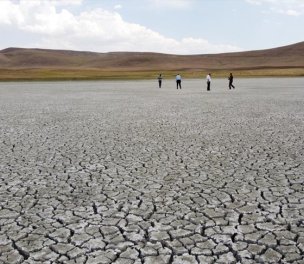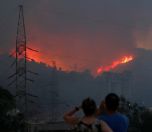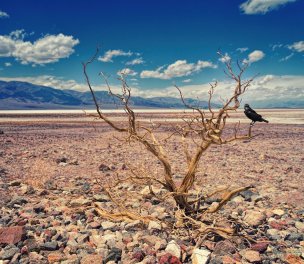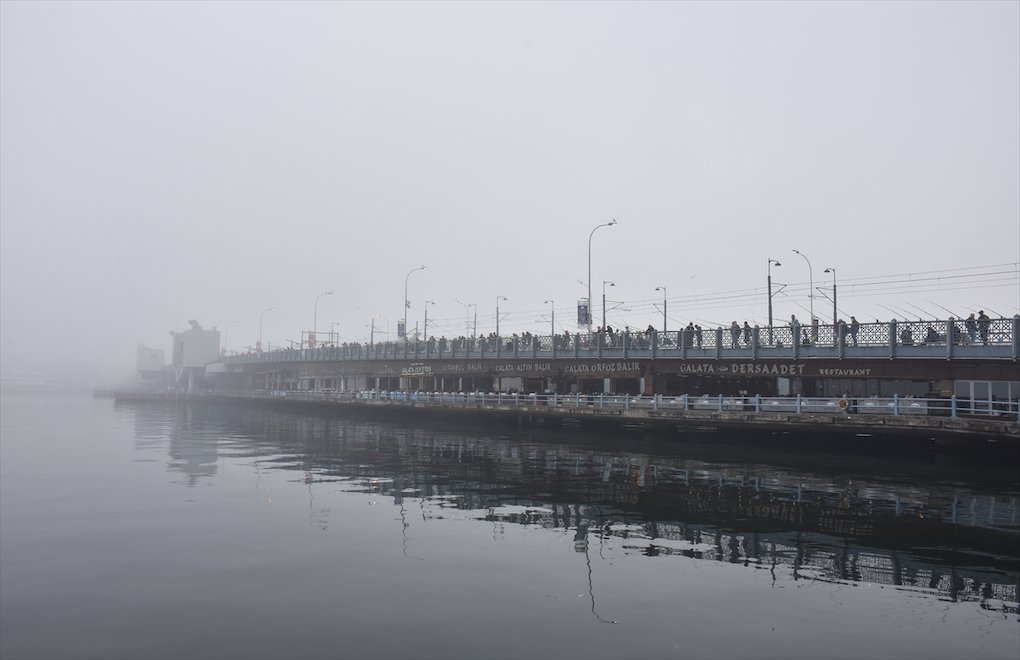Photo: Pixabay
Click to read the article in Turkish
The precipitation in the 2020-2021 water year was lower than normal values and the previous year, according to the State Meteorological Service.
The climate crisis triggers drought, as well as extreme weather events such as heat waves, cold waves, extreme rainfall and storms both in the world and in Turkey.
While such events are related to the climate crisis, their results also show the inadequacy of climate policies in Turkey.
With the drop in the occupancy rates in dams in the Marmara Region, most notably in İstanbul, drought has become a routine talking point especially in the past two years. However, it is only talked about in relation to the climate crisis in the mainstream media.
The lakes that are about to dry up such as Lake İznik and Lake Tuz and the dam lakes of Keban, Pabuçdere and Kazandere are the latest examples.
Contrary to popular belief, Turkey is not a "water-rich" but a "water-stressed" country and is faced with destructive effects of drought.
Is the climate crisis the only reason for the drought and water stress in Turkey? What kind of climate, agricultural and water policies does it have? What problems await us if the situation continues like this? Prof. Doğanay Tolunay from İstanbul University Faculty of Forestry explained to bianet.
Wild irrigation, thermal plants and population...
Is the climate crisis the only reason for the drought and the resulting water shortage?
Increasing temperatures, decreasing precipitation and the change in the distribution of precipitation within the year are among the expected effects of the climate crisis. However, when we take a look at water specifically, the issue goes beyond the climate crisis. We began talking about the drought issue in 2020. The media mostly reported about this in the case of Marmara. However, while the Marmara Region was rainy in 2021, there was a serious drought in the rest of the country and this drought still continues, especially in the regions of Central Anatolia and Southeastern Anatolia.
In 2008, we would consume 40-50 billion cubic meters of water as a country and would use 70 percent of this in agricultural irrigation. In 2018, our water consumption increased by about 15 billion cubic meters. The main reason for this was agricultural irrigation as well. There are two points: wild irrigation and the issue of product patterns.
Especially in arid regions like the Central Anatolia, we use an incredible amount of water, being dependent on groundwater. While we need to cultivate products such as sugar beet and corn in regions where precipitation is high and products such as wheat and grain in arid regions, we unfortunately don't do this.
Another problem is to focus on sectors with high water consumption. For example, there are still thermal power plants projects in Turkey, which cause serious water consumption. Some of them take the water from seas, but thermal plants built or planned to be built in inner regions use or plan to use ground and surface water.
In the case of cities, the biggest problem is the population growth. Because, as the population increases, you have to transfer water to these places from kilometers away. The average water consumption of a person in Turkey is around 200 liters. This rises to around 500 liters per person per day in some provinces.
Another problem independent of the climate crisis is that we destroy basins by opening them to development. For example, as a result of the unplanned enlargement of the districts of Avcılar and Küçükçekmece which are around Lake Büyükçekmece, a drinking water basin,, industry coming to the region and its wastes being directed to the lake in the 1980s, it became completely unusable. We observe that the quality of water deteriorates in drinking water basins in Turkey in this way.
Yes, there is the climate crisis and consequently drought and negative effects that increase evaporation, however, it is more correct to list the reasons for the current situation in Turkey as the failure to use water efficiently, the failure to save water, the exhaustion of water resources with uncontrolled development and especially the continuation of wild irrigation in agriculture and the failure to bring this under control.
"We're on the way to become a water poor country"
What awaits Turkey with the current climate, agriculture and water policies?
Our water resources are not increasing, on the contrary, they are decreasing. Imagine you have a glass of water. You will lose 10 percent of this with the effect of evaporation and decrease in precipitation that comes with climate change. As the population increases, you will have to share a glass of water with two people. Also, the probability of contamination of this water is very high, hence none of you will be able to drink the water. Turkey faces this risk.
When a classification is made across the world in terms of water, a country is considered water poor if the annual amount of usable water per capita is below 1000 cubic meters. We currently have around 1200-1300 cubic meters of usable water.
Our water resources are already shrinking due to climate change. Also, there is an additional demand of around 1 billion cubic meters of agricultural irrigation in Turkey every year. If this situation continues and the population of the country exceeds 100 million, we will be a water-poor country towards the 2050s.
Water saving in agricultural irrigation
How to combat drought?
We should urgently take measures to ensure water saving by appreciating the value of water. At this point, we should start with agriculture because we use about 70 percent of the water we consume in agriculture. The water we consume at home is about 10 percent of our total water consumption. So, a 1 percent saving in the water we consume at home would not be as effective as a 1 percent saving in agriculture. Therefore, we should focus on the areas where we consume more water and urgently find solutions to reduce water consumption in these areas. The most important one of these is the use of modern irrigation methods.
The product pattern is very important. Considering climate change, we need to switch to the agriculture method that can be fed only with rain water, and create a product pattern suitable for the climate and soil conditions of regions.
There is a concept called rain harvesting. People perceive this as setting up a tank under the rainwater drain at homes and collecting water there. However, the best rainwater harvest is to make the water infiltrate the soil. If you make water infiltrate the soil, your groundwater will be fed. As a result of storing that water in the soil, you increase productivity in agricultural areas and, at the same time, you will not lose your water by preventing floods. In this context, it is necessary to restore the places that have become bare and the vegetation has been lost due to erosion in high mountain areas, and to carry out repair works that will ensure that the precipitation infiltrares the soil without turning into floods.
Were there actions concerning the drought problem in Turkey's commitments at COP26?
There was not an article directly related to the water, but the agreement to stop deforestation and the degradation of lands which Turkey also committed to is indirectly related to water. We lose water in degraded areas. The water does not infiltrate the soil as rains cause floods and we cannot use this water.
In this context, it is very important to stop land degradation and rehabilitate degraded lands in terms of ensuring the storage of water and its infiltration into the soil, as well as preventing floods.
"Water crisis means food crisis"
Will the water crisis trigger other crises?
The issue of drought should not be remembered only when the water levels in dams decrease. Water is one of the most important problems of Turkey. Because water is the basic need for all living beings.
We also produce food with water. Drought means food crisis in addition to water crisis. It means health because you may face many diseases when you cannot access clean and sufficient water. For all these reasons, it is needed to make water a priority policy and to implement the methods to use it in the most efficient and clean way. As individuals, we should decrease the amount of water in every aspect of our lives a little bit, at least. However, for a much bigger decrease, national agricultural policies and water policies should be developed, of course. (TP/VK)










.jpg)
.jpg)


